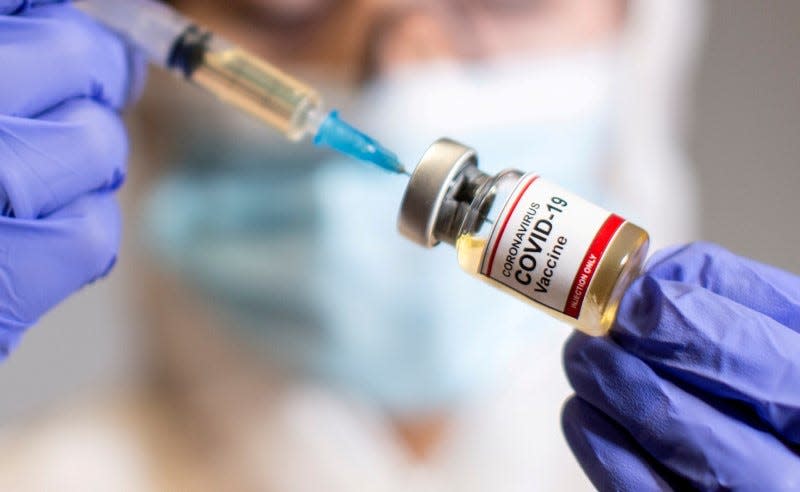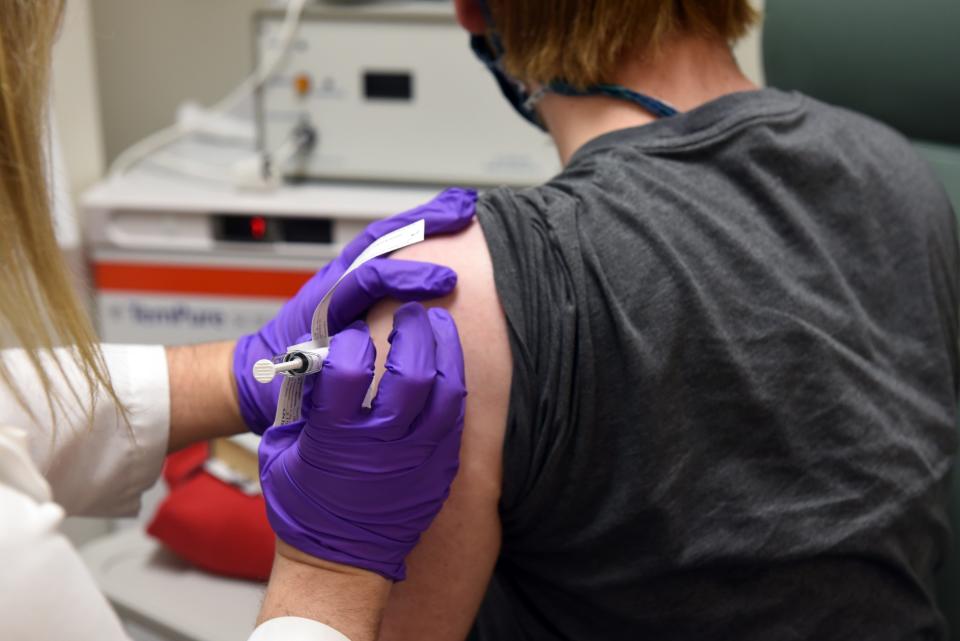A 23-year-old Italian woman received 6 times the recommended amount of Pfizer's coronavirus vaccine

A 23-year-old Italian woman received six doses of Pfizer's coronavirus vaccine on Sunday.
A nurse accidentally injected the entire vial, the Italian news agency AGI reported.
Medical experts said vaccine-dosing errors such as this usually don't lead to serious side effects.
A 23-year-old Italian woman received six doses of Pfizer's coronavirus vaccine on Sunday, after a nurse at a hospital in Tuscany accidentally injected an entire vial.
The Italian news agency AGI reported the incident on Monday, and USL Toscana Nord Ovest, a health network in Tuscany, acknowledged it in a press release.
Pfizer's shot is supposed to come in two doses, administered three weeks apart.
The woman is in stable condition after receiving fluids and the pain reliever paracetamol, AGI reported.
Nigel William Crawford, the director of SAEFVIC, the vaccine-safety service in Victoria, Australia, said vaccine overdoses aren't likely to cause serious adverse reactions.
"I often say 'you can't have too much of a good thing' when it comes to vaccines," Crawford wrote in The Conversation.
Even five or six doses, he added, is "still a relatively small amount and not likely to be harmful." Side effects from the shot, though - such as fever or pain at the injection site - may be heightened, Crawford said.
Previous vaccine overdosing incidents haven't seemed to cause any life-threatening outcomes. In April, dozens of inmates at an Iowa prison received six times the recommended vaccine dose. Cord Overton, a spokesperson at the Iowa State Penitentiary in Fort Madison, told The New York Times that none of the inmates had been hospitalized, though many were experiencing side effects such as body aches and fevers.
Similarly, an employee at the Singapore National Eye Center received five doses of Pfizer's vaccine in February. The person was taken to a local hospital for observation and was discharged two days later.
That same month, an 88-year-old man and a 94-year-old woman in Brisbane, Australia, received four times the recommended dose of Pfizer's vaccine. They did not experience any serious adverse reactions. Australia's federal health minister, Greg Hunt, said the doctor who performed the injection hadn't received the mandatory immunization training.
Higher doses didn't lead to serious side effects in trials

Clinical trials often test out different dosing regimens to the find the one that's safest and most effective.
That was the case in Pfizer's phase one and two trials: Some participants received 100 micrograms of the vaccine - more than three times the standard dose now recommended by the Food and Drug Administration. Those who received that higher dose didn't report any serious adverse reactions and saw roughly the same types of side effects as those who'd received the standard dose. Fever was far more common among the higher-dose recipients, though - 50% versus 8%.
Overall, the researchers found "no substantial differences" in the immune responses among those who'd received the higher dose versus those who got the standard one. So it makes sense to administer less of the vaccine: A lower dosing regimen means manufacturers can get more shots into arms quickly.
"The main issue in most cases will be the waste of the vaccine rather than any serious side effects," Peter Collignon, a physician at Canberra Hospital in Australia, told The Guardian.
But doctors do worry that reports of vaccine-administration errors could undermine public trust in coronavirus shots or in the healthcare workers who give them.
"Even if these 'overdoses' are not likely to be harmful, it's always safest to stick to the recommended dose," Crawford wrote. In the case of the Brisbane accident, he added, "We don't want to see an incident like this repeated."
Read the original article on Business Insider
Watch: Do coronavirus vaccines affect fertility?

 Yahoo News
Yahoo News 